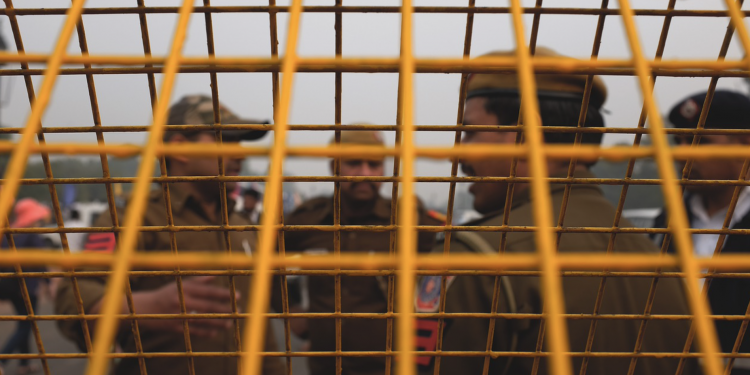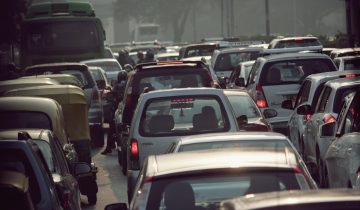Benicks and Jeyaraj: India’s Fight Against Police Brutality

The Grievance
On June 19, father and son Jeyaraj and Benicks were arrested for allegedly keeping their mobile phone shop open past the coronavirus curfew in Tuticorin, Tamil Nadu. They were then sexually abused and brutally assaulted in police custody and, as a result, passed away the night of June 22. Since then, support for the movement against police brutality in India has grown exponentially. In 2019 alone, 1,731 people have died in police custody. Why was this time different? The worldwide protests against police brutality sparked by the murder of George Floyd have created an atmosphere of activism and political participation, encouraging people to speak up for injustices in their communities. Indian culture and both news and entertainment media have normalized the long-term acts of violence perpetrated by Indian police. Despite Indian history, culture, and media normalizing the idea of police brutality, Indians must step up and fight for better enforcement of laws protecting those in custody.
The History Of Police Brutality In India
The foundation for India’s first police force was created by the Police Act of 1861 under the rule of the British Raj. This act was put into place after India’s First War of Independence with the intention of “crushing dissent and any movement for self-government.” The roots of the police force in India have always had the aim of stopping protests and change, and the effects of this can be seen post-independence as well. Post-independence, there have been countless instances of police brutality, one of the most significant being the Bhagalpur Blindings (1980-81). This is “a horrific example of extra-judicial punishment” in which “police officials in Bhagalpur town in Bihar poured acid into the eyes of 33 undertrials and convicts.” The Citizenship Amendment Act (CAA), introduced in late 2019 and considered anti-Islamic by many, led to protests. As a result, there has been a rise in police brutality; “anti-CAA protests reveal torture remains at the heart of Indian policing.” During the COVID-19 lockdown, tensions between police and citizens have further risen. Sonu Shah, an essential service provider, was shot by police on March 26, 2020. He survived the attack, but this incident is a highlight of many other instances of police brutality during the COVID-19 lockdowns. The police forces of India have historically relied on violent methods when handling “criminals”, but this does not justify police brutality today. The idea that those accused of crimes deserve the maximum punishment is unfair as everyone deserves to be treated in accordance with the law. Those living in India should use their voices to speak up against this issue of inhumane treatment of supposed criminals.
Normalization In Indian Culture And Media
Indian culture and media have normalized the long-term acts of violence perpetrated by Indian police. For years, both news and entertainment media in India have been glorifying police brutality. The popular Singam/Singham movie series made in many languages regularly portray police brutality as thrilling and “cool,” feeding the public a narrative that those who have allegedly committed crimes deserve violent punishment even if unwarranted. As a result, the notion that cops are violent is ingrained in Indian culture. The Wire author Sidharth Bhatia writes, “The policeman in India is a law unto himself and for him – constable or officer – beating up people without any fear of being held accountable is a routine matter.” This violence was rarely condemned by citizens due to its normality. Additionally, excessive amounts of fear and respect for the police is ingrained in Indian culture, and this results in police freely committing acts of brutality. However, the recent prevalence of the worldwide movement against police brutality has been eye-opening for many, illuminating the idea that violence enacted by officers is a violation of fundamental human rights. Despite the extensive normalization of police brutality in Indian culture, citizens must act against this issue. It has been forever ingrained into most Indian minds that it is “okay” for police to treat alleged breakers of the law as they please, and subject them to any sorts of violence. However, this is, in fact, not ethical. Indians must demand action to ensure that people such as Jeyaraj and Benicks do not suffer at the hands of police for alleged crimes.
The Unenforced Laws
India’s constitution and other laws and regulations prevent police officers from committing crimes and protect those in custody. However, these are rarely enforced due to disorganization and disregard for these laws, as well as the normalization of police brutality. Article 21 of the Indian Constitution states that “no person shall be deprived of his life or personal liberty except according to the procedure established by law.” The excessive use of force was not mandated by law in the case of Jeyaraj and Benicks. Further, the guidelines of arrest outlined by the supreme court case D.K. Basu vs. State of West Bengal were broken by police in their handling of Jeyaraj and Benicks. The normalization of police brutality in India has rendered these protections futile. Additionally, provision 686 of the Police Standing Order issued by the State of Tamil Nadu, prisoners are not to be subject to needless indignity or harsh treatment, was not followed.
What Now?
In the case of Jeyaraj and Benicks, five police officers have been arrested and charged with murder. However, countless cases are brushed aside and ignored. We must support this movement to dismantle systems that normalize police brutality in Indian culture and create protections to enforce the preexisting human rights regulations cops must follow. This movement is new and ongoing, but it has already made its successes by attracting an extensive network of supporters who are ready to fight the existing systems that permit cops to use violence. We must demand that these preexisting laws are enforced and upheld for all Indian people. Taking a stand against the culture of submission to police and higher authorities is the first and a significant step towards changing these injustices. Despite the hard–to–reach nature of politicians, they must be contacted, and justice must be demanded by the people of India, despite their age, race, gender, sexuality, caste, religion, or any other identity factor. Standing together is the most crucial factor in arriving at a police brutality-free India.
